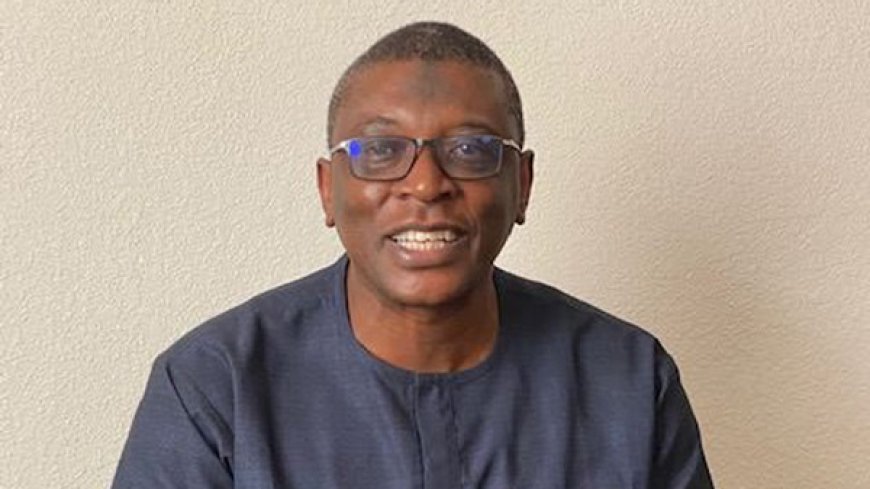WAIFEM seeks income rise, improved productivity

Director General, West African Institute for Financial and Economic Management (WAIFEM) Dr. Baba Musa, has called on government to ensure that 3.9 per cent growth for Nigeria in 2025 translate to decent jobs, rising incomes, improved productivity, and broader social welfare.
In his report presented at the just concluded 2025 IMF/World Bank Annual Meetings in Washington DC, titled: “Nigeria’s Economic Outlook at a Turning Point”, he said as Nigeria moves further into 2025, Nigeria’s economic story is one of resilience, renewal, and strategic recalibration.
Musa, who is also the President, Nigerian Economic Society, said Nigeria’s economic trajectory is increasingly encouraging with the International Monetary Fund (IMF) projecting real Gross Domestic Product (GDP) growth of 3.9 per cent in 2025, up from 3.5 per cent in 2024, with further acceleration to 4.2 per cent in 2026.
Musa said Nigeria in 2025 is at a critical inflection point, cautiously optimistic yet structurally fragile.
“Gains in growth, inflation moderation, and investment confidence mark important progress, but the work is far from complete. To sustain the recovery, Nigeria must maintain macroeconomic stability, deepen structural reforms, and ensure that growth translates into tangible improvements for citizens.”Achieving this requires collaboration among government, private sector, civil society, and development partners,” he said.
According to him, by committing to policy consistency, human capital investment, and inclusive growth, Nigeria can consolidate its recovery and emerge as a more competitive, resilient, and equitable economy in the years ahead.
“Globally, economies are grappling with slowing growth, projected at 2.7per cent in 2025 by the IMF for advanced economies, and heightened geopolitical risks that affect trade and investment. Against this backdrop, Nigeria has demonstrated remarkable determination. Domestically, inflationary pressures, infrastructure deficits, and unemployment persist, yet they now represent policy frontiers rather than defining constraints,” he said.
Musa said recent policy measures, ranging from fiscal consolidation to targeted monetary adjustments, have laid the groundwork for a sustainable growth trajectory.
“The real test, however, lies not only in achieving stability but in ensuring that it translates into tangible socio-economic outcomes: decent jobs, rising incomes, improved productivity, and broader social welfare. If Nigeria deepens reforms, invests strategically in human capital, and leverages its structural advantages, the country can achieve not only recovery but inclusive and durable economic transformation,” he said.
He said the growth for Nigeria is underpinned by stronger oil production following operational improvements and policy reforms in the petroleum sector.
“Recovery in services, particularly telecommunications, financial services, and transport, reflecting resilient domestic demand. Improved agricultural output, thanks to favorable weather patterns and government support for mechanization and inputs,” he said.
He said the recent GDP rebasing has also given a more accurate reflection of the economy, capturing growth in high-potential sectors such as digital services, modular refining, and the creative industries. This expanded view highlights opportunities for job creation, innovation, and revenue generation that were previously underappreciated.
According to him, inflation remains elevated but is gradually moderating. “Headline inflation declined to 18.02per cent in September 2025, down from 20.12% in August, reflecting improved food supply, seasonal harvests, and targeted interventions in the energy market. The Central Bank of Nigeria’s interest rate cut, the first since 2020, signals a nuanced policy shift: a deliberate effort to balance price stability with growth and employment objectives. This approach is consistent with modern macroeconomic management, where inflation targeting is tempered by the need to stimulate investment and production in key sectors,” he said.
Musa said the Federal Government’s approval of the Medium-Term Debt Management Strategy (MTDS) 2024–2027 reflects a professional recognition that sustainable growth requires fiscal prudence alongside strategic borrowing.
He said the key objectives include extending average debt maturity to at least 10 years, reducing refinancing risk and interest rate volatility and reducing foreign-exchange-denominated debt to 45%, mitigating vulnerability to exchange rate shocks.
From an economist’s perspective, the MTDS positions Nigeria to borrow for growth, not consumption, ensuring that public investment projects generate returns exceeding debt servicing costs. This is a critical step toward fiscal sustainability and investor confidence.
“Investor sentiment is improving, illustrated by Shell’s approval of the HI Offshore Gas Project, expected to supply 350 million standard cubic feet of gas per day to Nigeria LNG. Economically, such projects deliver multiplier effects: they stimulate domestic suppliers, create high-skill and semi-skilled jobs, and strengthen Nigeria’s position as a reliable energy hub in Africa. They also enhance balance of payments stability, by promoting export-oriented production,” he said.
On strategic priorities for sustained economic improvement, he said the reduction of electricity subsidies by 35 per cent and adoption of a targeted tariff structure has freed fiscal resources.
“However, long-term industrial growth requires strategic investment in energy generation, transmission, and distribution, as well as transport, logistics, and digital infrastructure. Economically, infrastructure is not just a cost, it is a productivity multiplier. Reliable power and transport reduce production costs, attract investment, and enable firms to scale,” he said.
Dependence on oil exposes the economy to global price volatility. True resilience demands diversification into labour-intensive, exportable, and technologically dynamic sectors. Accelerating reforms in agriculture, manufacturing, mining, and technology is crucial. Agro-processing, renewable energy, and ICT not only generate jobs but also expand Nigeria’s value-added capacity, a critical determinant of long-term growth.
Also, he said growth without inclusion is unsustainable. Expanding social safety nets, skills development, and youth employment programs ensures that reform gains are widely shared. Investments in conditional cash transfers, digital skills programs, and microfinance access are not mere social measures, they are strategic economic interventions that increase productivity, stabilize consumption, and reduce social unrest.
“Policy consistency and institutional efficiency are non-negotiable for lasting economic progress. Strengthening transparent institutions, digital government processes, and public procurement systems reduces leakages, encourages private investment, and enhances policy credibility. From an economist’s standpoint, strong institutions are a precondition for structural transformation,” he said.
WAIFEM seeks income rise, improved productivity - The Nation Newspaper









